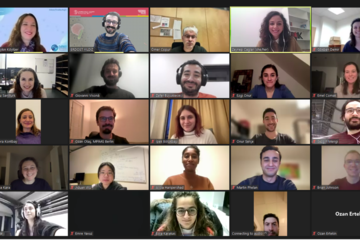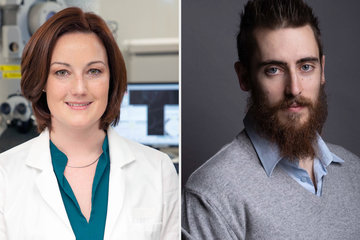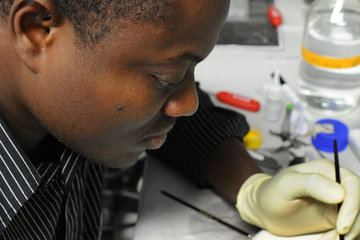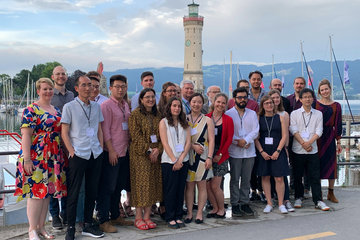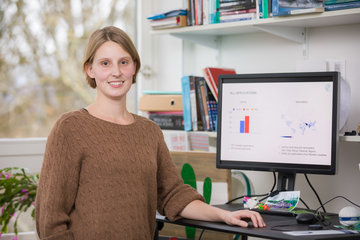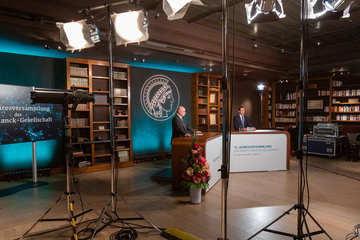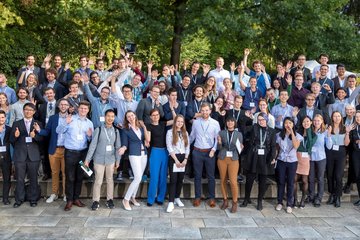
FAQ: How to apply for a Max Planck Research Group Leader position?
Institute-specific Max Planck Research Groups
Max Planck Research Groups are established as smaller, independent research units, often supplementing departments at Max Planck Institutes. The groups offer early career researchers who hold a doctorate an exceptional opportunity to further qualify themselves on a very high level. Under the guidance of the leaders, doctoral students and post-docs work together on a specific research topic. The leaders of the research groups are appointed by the President of the Max Planck Society for a six-year term.
The most frequently asked questions and their answers:
1. When is it possible to apply for the leadership position of a Max Planck Research Group?
Applications for MPRGL positions are only possible if they have been advertised. There are two adverts procedures:
Advertisements for institute-specific positions:
Depending on the resources and, importantly, space available at the respective MPI, these institute-specific positions are continuously advertised according to need. In general, the positions relate to a particular research field. Advertisements usually appear in scientific journals corresponding to the field as well as on the homepage of the respective MPI.
Major advertisements for the centrally announced positions:
These are usually published once a year in autumn and They are published in relevant online job exchanges and on the Internet platforms of important scientific journals. These positions are not linked to specific scientific topics. Applicants state their past and future individual research projects, identify and indicate the institute(s) they would choose.
2. On which target groups do the MPRG-L positions focus?
This program is particularly suitable for excellent young applicants who have already held one or two post-doc jobs and who would now like to – and deem themselves apt to – head a group and to elaborate together on own research ideas independently. Please note that MPRG-L positions are only open to applicants who hold a doctorate.
3. What resources are available for MPRGs?
MPRG-L are offered internationally competitive packages for personnel, start-up money, and yearly operating costs. The leader’s salary is similar to that of junior and assistant professorships or associate professorships in the U.S. The total financing sum corresponds to the level of first-class, international start-up or career development programs. Moreover, MPRG-L are bestowed a great deal of individual flexibility, if necessary, and can employ the funds allocated to them according to need..
4. What are the career prospects afterwards?
The positions for MPRGL are usually limited in time. In the past, a considerable number of researchers were appointed director of a Max Planck Institute sooner or later. In addition, the majority of researchers have been offered a full professorship at a German or international university or a comparable position at a research institution.
A permanent position (tenure track position) can only be offered in selected cases.
5. Is a participation in teaching activities expected?
Such a participation is not one of the formal requirements. However, MPRGL are free to get involved in the training of young scientists at a local university.
6. Is there any age limit?
No. However, the calls for proposals for the MPRGL positions are aimed at talented young scientists. Ideally, applicants should have completed their PhD no more than seven years ago (PhD in medicine: no more than nine). If this limit is exceeded, applicants will be asked to submit a detailed statement on their suitability in spite of having completed their doctorate some time ago.
7. How do family breaks affect the postdoctoral period?
The Max Planck Society also expressly welcomes applications from young female scientists whose PhD was awarded more than seven years ago due to family interruptions. In order for this to be taken into account in the procedure, please state these times in your cover letter.
8. Is a (completed) habilitation a reason for not considering applications?
No, it isn´t. A habilitation is neither a requirement nor is it considered a disadvantage. MPRG-L often habilitate at a neighboring university. Please note that the Max Planck Society is in any case not authorized to confer habilitations.
9. Is it possible to apply to other research organizations in parallel with an application to the Max Planck Society?
Yes. However, we would appreciate a notification in this respect.
10. Is it possible to apply for an MPRGL position at a Max Planck Institute where the applicant is/was already employed?
For career planning, it is usually better if a change is preferred, but there may occasionally be good reasons for choosing the Max Planck Institute as the optimal location for future research projects where research has already been carried out. Such applications will be specially reviewed and assessed on an individual basis. Before applying, please inform the relevant MPI and the directors.
11. Must the application and a letter of recommendation be written in English?
Yes please. Only applications and letters of recommendation written in English are accepted, since the selection committees usually include some international experts.
12. Which publication status must the submitted publications have reached?
For the successful bibliography, committees in general only count published papers or papers that are in press. Papers that to date carry the status of submitted must be clearly marked as such.
13. Can the supervisor of the doctoral thesis or a director of a preferred Max Planck Institute provide a letter of recommendation?
Yes, this is possible. However, a maximum of one letter of recommendation may come from a Max Planck Director. At least one of the letters must come from an external reviewer; but also both letters of recommendation can be submitted by external reviewers.
The following questions and answers specifically refer to type 2, the major advertisements for the centrally announced selection procedure:
14. Can applications or letters of recommendation be submitted on paper?
Unfortunately not. Only applications that are completely in electronic form will be considered and evaluated; This holds for the required letters of recommendation, too.
15. In past years, why have some Max Planck Institutes often not been included?
Not all Max Planck Institutes always have sufficient space to accommodate an MPRG appropriately. Many institutes have already succeeded in accommodating one or more groups, which means that they will not be able to provide further rooms in the foreseeable future. If, however, there are good reasons for choosing the Max Planck Institute as the optimal location for future research projects where research has already been carried out, please contact the relevant MPI and the directors before applying. Flexible solutions will be sought here.
16. Should the applicant contact the preferred Max Planck Institute(s) prior to an official application in the case of a central call for proposals?
Yes, in any case. In this way, common areas of interest can be identified with the institute and it can be determined whether an institute is fundamentally interested and able to provide premises and resources for an MPRGL.
17. What is the composition of the selection committee in the open procedure?
The Max Planck Society is divided into three sections: the Biology and Medicine Section; the Chemistry, Physics and Technology Section; and the Humanities and Social Sciences Section. Each section has its own selection committee, consisting of international Max Planck Directors and external experts, as appropriate. In principle, the Vice-President of each section chairs the commission. This committee is responsible for the pre-selection of applicants invited to the Selection Symposium as well as for the recommendations to the President after the Selection Symposium. The final selection of those who are to be appointed to a MPRGL position will be made by the President of the Max Planck Society.

